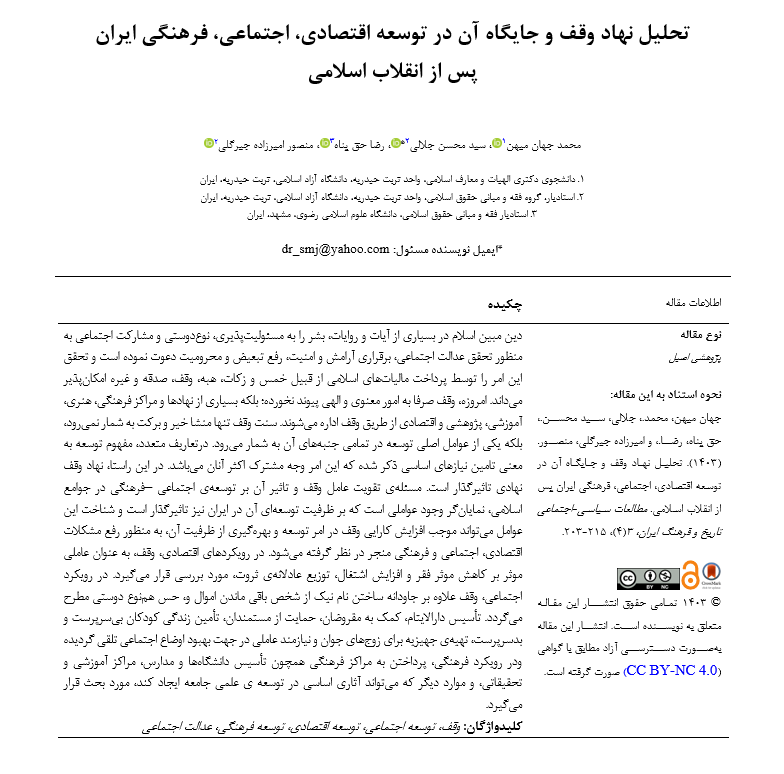Analysis of the Waqf Institution and Its Role in Economic, Social, and Cultural Development in Iran after the Islamic Revolution
Keywords:
endowment, social development, economic development, cultural development, social justiceAbstract
The religion of Islam, through numerous verses and narrations, invites humanity to responsibility, altruism, and social participation to achieve social justice, establish peace and security, and eliminate discrimination and deprivation. It considers the realization of these goals possible through the payment of Islamic taxes such as khums and zakat, as well as through donations, waqf, and charity. Today, waqf is not only tied to spiritual and divine matters; many cultural, artistic, educational, research, and economic institutions and centers are managed through waqf. The tradition of waqf is not merely a source of blessing but is also regarded as one of the main drivers of development in all its dimensions. In various definitions, development is often described as meeting basic needs, which serves as a common thread among them. In this context, the waqf institution is considered an influential entity. Strengthening the waqf mechanism and its impact on socio-cultural development in Islamic societies highlights the existence of factors that also influence its developmental capacity in Iran. Identifying these factors can enhance the efficiency of waqf in fostering development and utilizing its potential to address economic, social, and cultural challenges. From an economic perspective, waqf is examined as an effective means to reduce poverty, increase employment, and promote equitable wealth distribution. From a social perspective, waqf is seen as a way to immortalize a good name for the donor, preserve assets, and promote altruism. Establishing orphanages, assisting debtors, supporting the needy, ensuring the livelihood of orphaned and underprivileged children, and providing dowries for young and needy couples are considered factors that improve social conditions. From a cultural perspective, the focus is on cultural centers such as the establishment of universities, schools, educational and research centers, and other institutions that can have a significant impact on the scientific development of society.
Downloads








